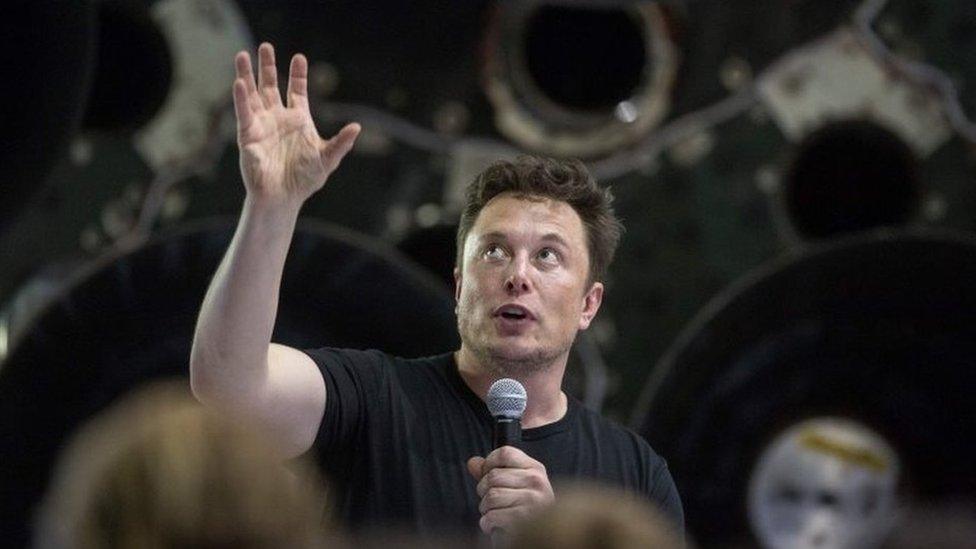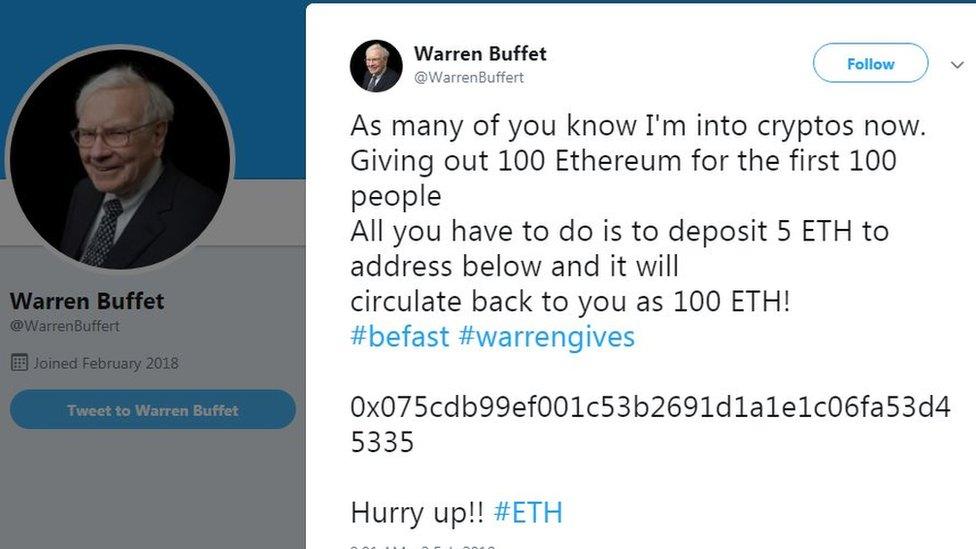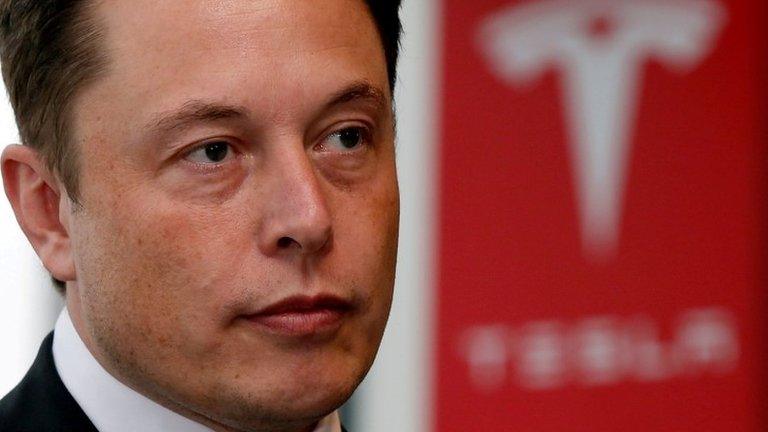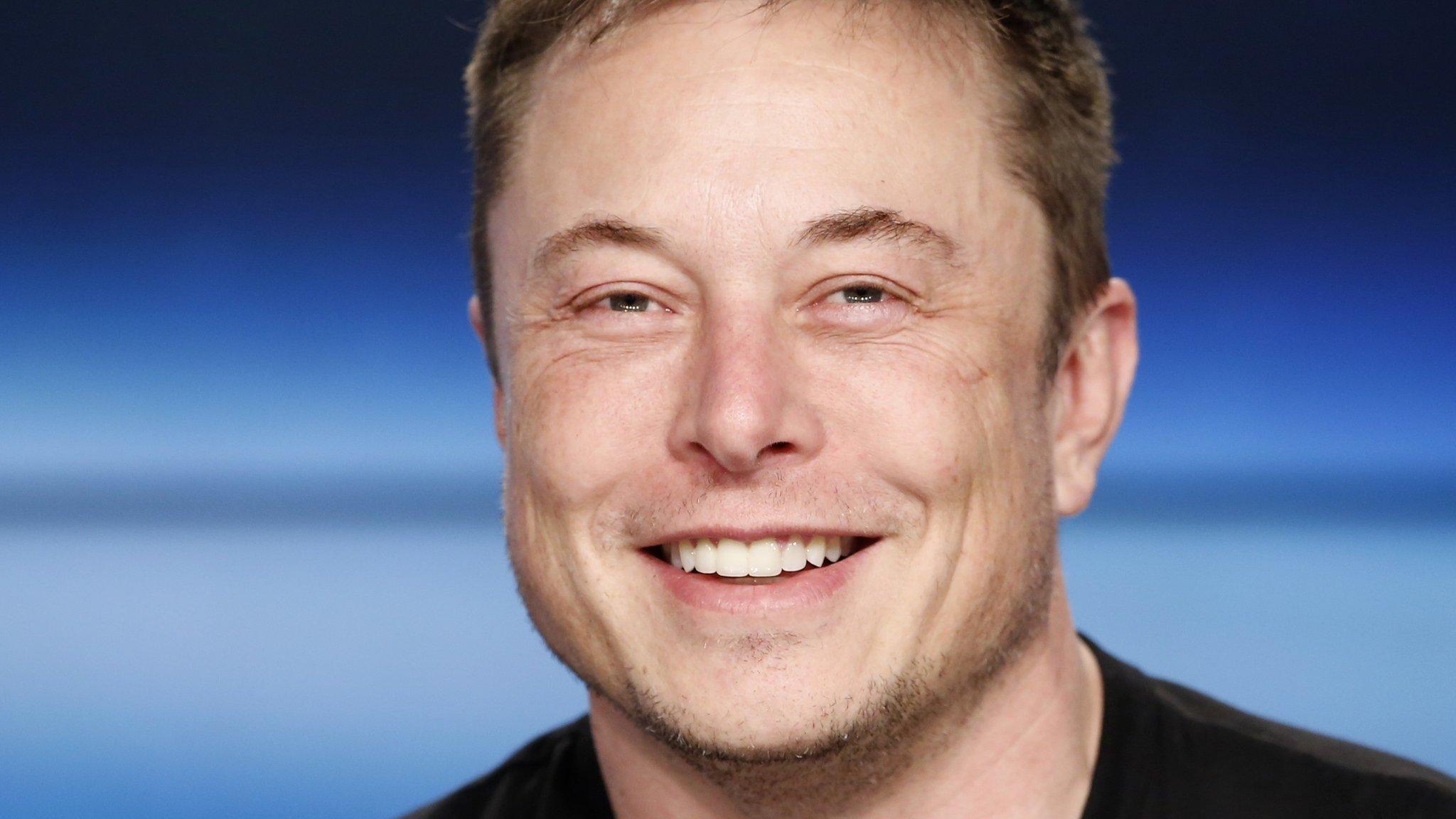Elon Musk says Twitter blocked him after Bitcoin tweet
- Published

Twitter apparently believed someone else was in control of Mr Musk's account
Elon Musk says Twitter briefly blocked him because the tech firm suspected his account had been hacked.
The Tesla chief indicated the safety precaution was prompted by a tweet he had sent asking: "Wanna buy some Bitcoin?"
Several fake accounts have previously used images of Mr Musk and variations of his name to promote cryptocurrency scams, sometimes within replies to his posts.
Twitter declined to comment.
"For privacy and security reasons, we don't comment on individual accounts," explained a spokeswoman.
However, the BBC understands that the account was locked down rather than "blocked".
Mr Musk's suspect tweet had featured an anime drawing of a girl wearing Bitcoin-themed clothing.
Allow X content?
This article contains content provided by X. We ask for your permission before anything is loaded, as they may be using cookies and other technologies. You may want to read X’s cookie policy, external and privacy policy, external before accepting. To view this content choose ‘accept and continue’.
Allow X content?
This article contains content provided by X. We ask for your permission before anything is loaded, as they may be using cookies and other technologies. You may want to read X’s cookie policy, external and privacy policy, external before accepting. To view this content choose ‘accept and continue’.
The Japanese art form is a current interest of the entrepreneur, who recently commented on his love for the movies Your Name and Princess Mononoke.
Mr Musk is far from being the only celebrity whose identity has been spoofed by those seeking publicity for dubious crypto-offers.
Others include:
President Trump
Bill Gates
Warren Buffet
John McAfee
Bloomberg reporters Olga Kharif and Lily Katz

Fake accounts impersonating the famed investor Warren Buffet have also been used
In some cases, accounts are first registered, external to an unrelated name that gains a Twitter-verified tick only to have their image and username changed afterwards to impersonate a famous figure.
Cyber-security firm Duo Lab published a report in August detailing how software tools known as "bots", external are being used to automate such scams. It said that they had avoided detection by taking steps such as making minor edits to the stolen profile images.
Mr Musk has previously complained about the phenomenon, and sought help to, external "get rid of the annoying scam spammers" from Jackson Palmer, the creator of Dogecoin.
Mr Palmer suggested the social network needed to find a way to automatically weed out such posts, external, and others have also urged it to be more proactive, external in tackling the problem.
"We are proactively tackling so-called cryptocurrency scams on the platform," a spokeswoman for Twitter told the BBC.
"In the last week alone, user impressions have fallen by a multiple of 10, a significant improvement on previous action rates."
Mr Musk has faced criticism for his own Twitter activity in recent months after repeatedly accusing a man of being a paedophile without presenting evidence, and claiming he had "secured" funding to take Tesla private when a deal had not been finalised.
- Published30 September 2018

- Published6 March 2018
